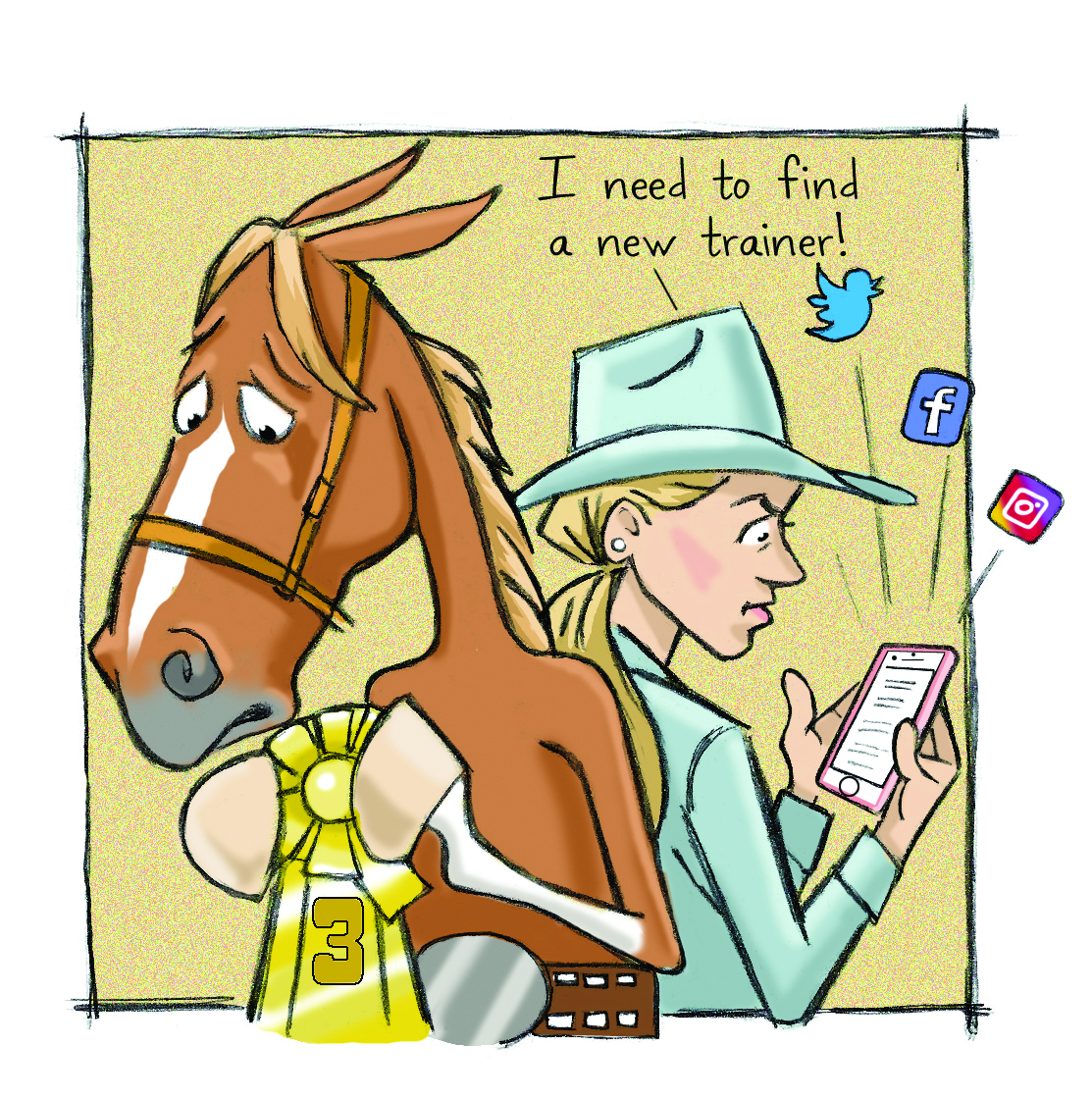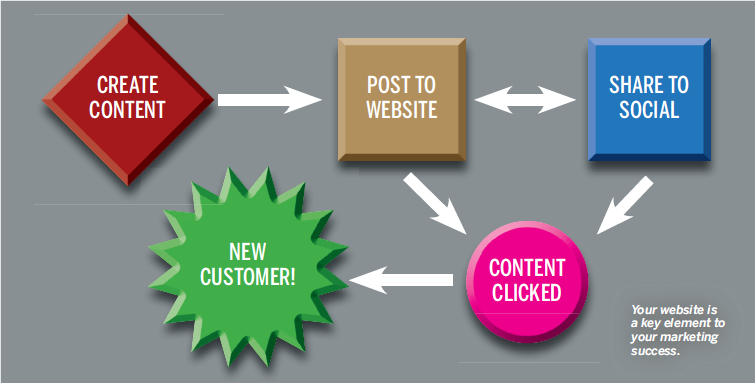Learn to handle the five most common client-trainer conflicts.
By Kelley Forseth, With Alexis Bennett

Dinners; long days and nights at shows; and hours of exchanges about the horse, performances, life, and riding often blur the lines between what’s professional and what’s personal with trainers and clients. When something goes wrong, it can make it difficult to confront the issue because you don’t want to change the relationship. Conflict and difficult conversations never get easier, but you can get better at handling them.
In this series, I’ll analyze five common trainer/client conflicts and the reactions you might have to them, from least and most desirable. Aim for the best response possible when dealing with clients, and know that sometimes it’s not always achievable. They are:
Part 4: Better-Than-the-Rest Billie
Social-Savvy Sarah
The scenario: You came out of the pen embarrassed. You didn’t mark as well as you thought and are especially disappointed since the mare you’re riding has been working so well lately. Your client stands outside the pen. You both shrug. A longtime customer, she understands that these things happen.
Later at dinner, your client seems off. You wonder if it’s the run. She assures you that she just has other things on her mind. The following week you hear from another client that the mare’s owner is indeed upset about the show. She’s shared online and with her friends that she’s considering pulling her horses from training. You call to ask about it, and she says everything’s fine. When you press, sharing what you’ve heard, she gets defensive. The situation escalates.
Worst reaction: You let her words and actions get the best of you. You argue over the phone and hang up. When you see clients she’s talked to, you bad-mouth her to them. You defend yourself on social media and to anyone who’s heard about the situation. When she picks up her horses, you make sure to get the last word.
Why it’s bad: This approach damages your reputation with the current client and the clients who see your reaction to the situation. Even if you don’t intend to work with her again, the horse community is small; you’ll likely see her again. You haven’t tried to manage the problem, only confronted her and escalated it.
Better reaction: You try to reason with her. You try to talk over the phone and through email and text message. She refuses to meet you in person. Despite numerous attempts to resolve the issue, you can’t seem to calm her. She continues to be upset, further trying to damage your reputation to your clients, other trainers, and her friend group.
<b>Why’s it’s less detrimental:</b> Eighty-percent of communication is tone and non-verbal communication. Face-to-face is preferred for difficult conversations. If she refuses to meet, do your best to remove yourself from the situation and disengage. Understand that some people are toxic, and no matter what you do or say, the drama will continue. Save yourself the headache. In the short-term it’s understandable that you’re frustrated and nervous about the financial impact and damage to your reputation, but remember that eventually everything catches up. If you handle yourself professionally, people will respect you and question what they’ve heard.
Best reaction: You listen but aren’t reactive, even if what’s said is hurtful. You suggest that you meet in person. You explain that you both want the same thing for the horse and that you want to have open communication. You share how you feel and find out why she didn’t feel she could talk to you directly. If it’s an option, you negotiate rules of the client-trainer relationship and sign a written contract.
Why it’s best: Reacting emotionally plays into the drama. If you’re able to meet face to face, allow her to see that you’re sincere in your quest to understand. Sitting down also gives her an opportunity to share feedback. Perhaps you discover that you’re intimidating, overreactive, or difficult to talk to, and that’s why she didn’t come straight to you. Work on this to improve your relationships with all your clients. Establishing a written contract with agreed conduct gives you something to point to in the future.
Click the links above to read the rest of this article.



